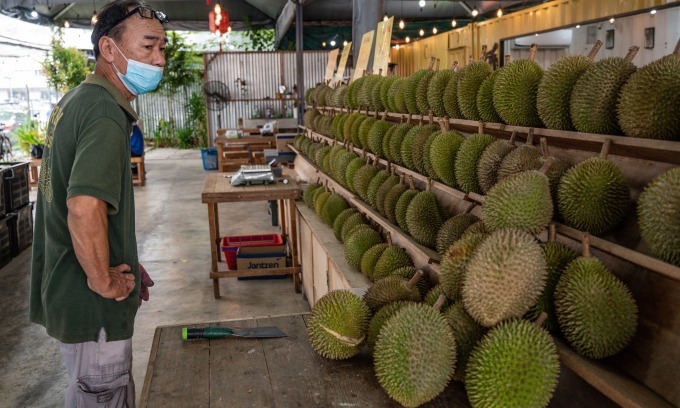Agricultures, Foods, News & Event
Export permit hurdles for Malaysia’s fresh durian shipment to China

Malaysia is preparing to deliver its first shipment of fresh durians to China, but obtaining approved permits might be difficult for exporters and farmers.
Malaysia was granted permission to export fresh durians to China under a phytosanitary protocol signed on June 19 during Chinese Premier Li Qiang’s visit to the country.
However, while the protocol gave the country the green light to export fresh durians, the actual export date was not confirmed, according to Malaysia’s national news agency Bernama.
Earlier this month, Malaysia’s Agriculture Department director general, Nor Sam Alwi, noted the country is preparing to deliver the first 1,000 tons of fresh premium durians to China, but the export agreement has yet to be finalized.
“We expect (it exported in) October but everything depends on the speed and approval from the General Administration of Customs of the People’s Republic of China (GACC),” Bernama quoted her as saying.
While Malaysian farmers are eager to capitalize on the durian market, they must wait until September for their applications for approved permits to be reviewed by China’s customs, Thai newspaper The Nation reported.
But getting a permit is not just about waiting, as farmers and exporters must also meet the strict requirements set by China.
“China requires a certain quantity and quality before accepting the fruits,” Food Security and Cooperative Development Committee chairman Fahmi Zainol told Malaysian news outlet The Star. “There needs to be enough quantity of the same ‘brand’ (type) of the fruit, but Penang farmers who have a mixed variety of durian species face difficulties in fulfilling this (requirement).”
Durian farmer Tan Chee Keat, who has been exporting fresh durians to China for eight years under a special approval, added that they must also adhere to GACC’s many protocols and fulfill hazard analysis and critical control point procedures for food safety management.
“It is not easy and not many farms here can do so.”
Malaysian durian expert Lim Chin Khee told the South China Morning Post that the country’s current production of fresh durians is sufficient to export to China, but maintaining the fruit’s quality, especially during transport, might be a challenge.
“Ensuring the freshness of durians during transport requires robust cold chain [logistics] infrastructure, which may necessitate significant investment and coordination,” he noted.
Abdul Rashid Bahri, director general of Malaysia’s Federal Agricultural Marketing Authority, said that approximately 70 packing centers across the nation are currently under review by the Agriculture and Food Security Ministry.
Additionally, over 200 durian farms that meet national agricultural standards are seeking to undergo the auditing process to become eligible for export, he added.
Before the signing of the protocol, Malaysia had been selling durians as pulp, paste, and frozen whole fruit to China.
Last year, it exported RM1.19 billion (US$252.2 million) worth of durian to China, making the country its key market.
Source: Export permit hurdles for Malaysia’s fresh durian shipment to China – VnExpress International

